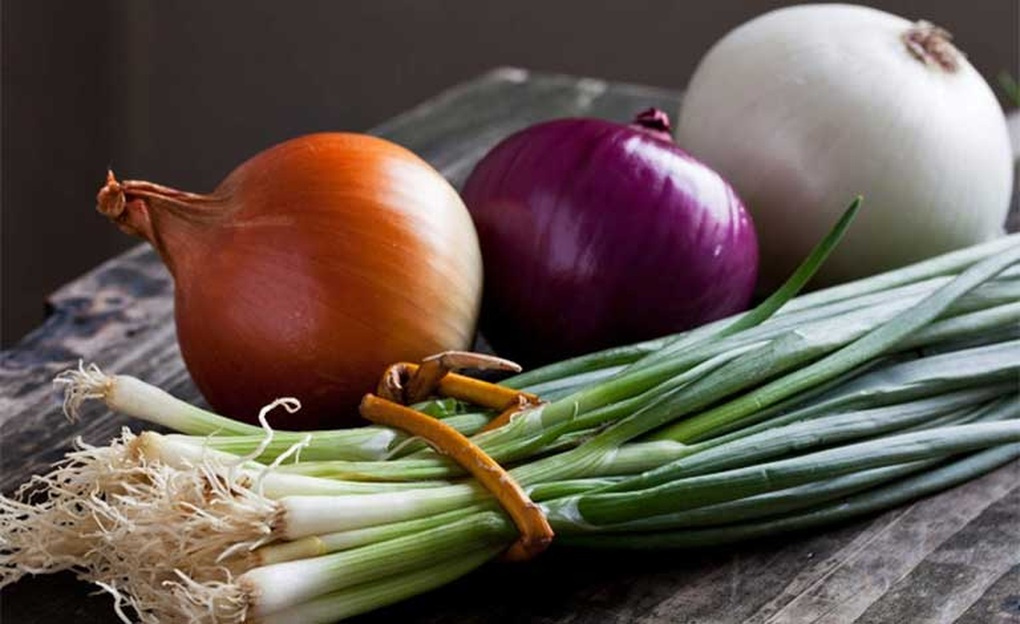Introduction to Onions and Their Potential Health Benefits
Onions, a versatile vegetable, are packed with nutrients and beneficial compounds. Beyond their savory flavor, onions offer a range of positive impacts on human health. This article will explore the notable health benefits of onions, providing insight into their valuable contributions to overall well-being.
Rich Source of Flavonoids
Onions are a significant source of flavonoids, a group of plant polyphenols with potent antioxidant properties. These antioxidants protect cells from free radical damage, potentially reducing the risk of chronic diseases like cancer, cardiovascular disease, and inflammation.
Doctors at Nguyễn Tri Phương Hospital (Ho Chi Minh City) emphasize the importance of flavonoids in onions. These compounds are most concentrated in the outer layers of the onion, so it’s beneficial to keep this part when cooking for maximum benefits.
Quercetin, a key flavonoid in onions, has demonstrated anti-cancer and blood pressure-lowering properties. Studies suggest quercetin may slow tumor growth and help regulate blood pressure, thus reducing the risk of cardiovascular diseases such as stroke, heart failure, and atherosclerosis.
High Content of Organosulfur Compounds
Onions contain sulfur compounds, which are responsible for their distinctive aroma. These compounds not only contribute to flavor but also possess anti-inflammatory properties, potentially supporting the treatment of respiratory issues like asthma, arthritis, and cardiovascular disease.
Aggregate research in Molecular Aspect of Medicine (2010) highlights the preventive role of frequent consumption of organosulfur compounds found in onions and garlic in cardiovascular disease progression. These compounds act as natural blood thinners, helping to prevent blood clots in blood vessels, reducing the risk of heart attacks and strokes.
Rich in Chromium for Improved Blood Sugar Control
Onions also provide a significant amount of chromium, a crucial mineral for regulating blood sugar levels. Chromium supports the activity of insulin, facilitating the metabolism of carbohydrates, fats, and proteins. This is particularly beneficial for individuals with insulin resistance or type 2 diabetes.
Abundant Vitamin C
Onions are a good source of Vitamin C, a vital antioxidant for a healthy immune system. Vitamin C also aids in the absorption of non-heme iron from plant sources like spinach. Stir-frying leafy greens with onions provides a good way to get both vitamin C and iron.
Improved Bone Density and Reduced Fracture Risk
Some studies indicate a positive correlation between onion consumption and bone density, particularly beneficial for women in perimenopause and postmenopause, who are more susceptible to osteoporosis. Studies show that women who eat onions at least once a day have significantly higher bone density than those who eat them less than once a month. Onions may also help lower the risk of hip fractures.
Preparation and Usage
Onions can be eaten raw or cooked. To maximize health benefits, try to remove as little of the onion’s flesh as possible. If minimizing nutrient loss is important, wait approximately 5 minutes before cooking.
Onions are versatile and can be added to many dishes, from soups and stews to stir-fries and sauces. They also make a beautiful garnish for meals.
Conclusion
Onions offer a multitude of significant health benefits. From supporting the immune system to reducing the risk of chronic diseases, onions play a vital role in maintaining overall well-being. Incorporate onions into your daily diet to reap these amazing benefits.
Source: https://dantri.com.vn/suc-khoe/loi-ich-tuyet-voi-cua-hanh-tay-voi-suc-khoe-20250303173823691.htm (Please check and update the source with additional information if necessary.)
 The amazing health benefits of onions
The amazing health benefits of onions



